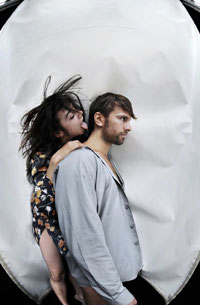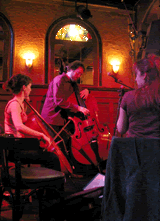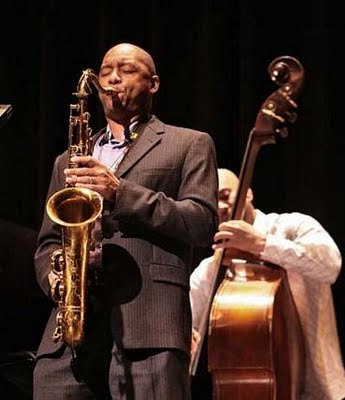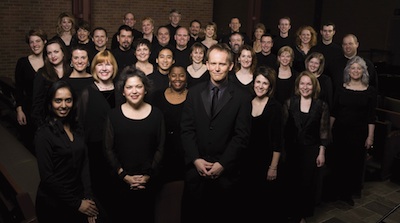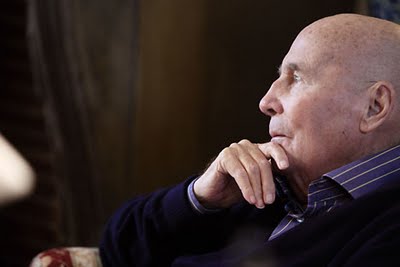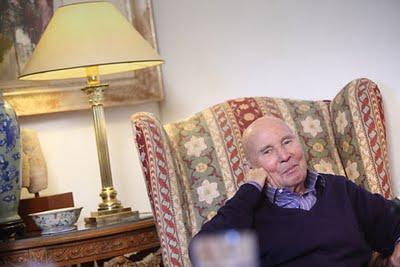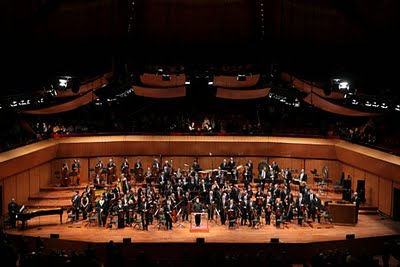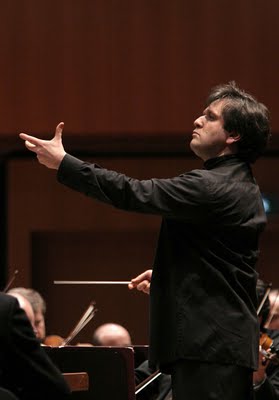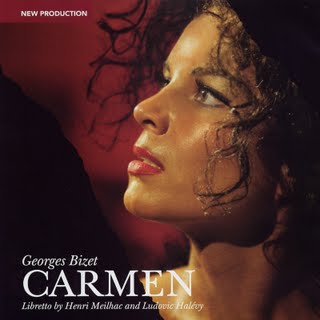Cette semaine à Montréal (18 à 24 jan) / This Week in Montreal (Jan. 18 - 24)
Théâtre : Sextett. Intrigante proposition que cette « comédie érotique » imaginée par l’auteur français Rémi De Vos. Présentée cet automne au Théâtre du Rond-Point, à Paris, la pièce met en scène un jeune homme poursuivi par le désir de plusieurs femmes délirantes. Une coproduction à la distribution internationale, incluant la charmante Portugaise Maria de Medeiros et notre Anne-Marie Cadieux. » Du 12 janvier au 6 février, à l’Espace Go —Marie Labrecque
Théâtre : La Liste. Avant même de voir le jour sur scène, cette pièce de Jennifer Tremblay a remporté l’an dernier le Prix du Gouverneur général en théâtre. Le jury a louangé l’universalité de ce monologue où une mère de famille se questionne sur sa culpabilité dans la mort d’une voisine. Le soliloque dispose déjà d’un atout de taille : l’éblouissante interprète Sylvie Drapeau. » Du 12 janvier au 6 février, au Théâtre d’Aujourd’hui —Marie Labrecque
Theatre: The off-Broadway smash hit Menopause The Musical comes to the Centaur from January 12th to February 7th. Four women of completely different backgrounds meet at Bloomingdale’s lingerie sale with nothing in common but a black lace bra and the day-to-day hectic challenges of aging. The musical hilariously re-lyricizes songs from the 60s, 70s and 80s to suit the situation. The Bee Gee’s “Stayin’ Alive” becomes “Stayin’ Awake”, “My Guy”, changes to “My Thighs” and “The Lion Sleeps Tonight” is transformed into “In the Guest Room or on the Sofa, My Husband Sleeps at Night”. Celebrating life transitions and the perks and pains of womanhood, this show promises a rollicking good time for all ages. —Jessica Hill
Orchestral Music: On January 20, OSM Solo Trombonist James Box performs a concerto that fuses sounds of jazz, swing and world music by the American composer Nathaniel Shilkret. Also on the programme are works by Chabrier and de Falla conducted by Julian Kuerti. 514-842-2112
Jazz : Ven. 22, sam. 23 » Cordâme (trio à cordes du contrebassiste Jean Félix Mailloux). Upstairs Jazz Bar. (20 h 30)
Musique de chambre : Acclamé comme le premier ensemble de musique de chambre du pays, Musica Camerata célèbre cette année sa quarantième saison. Le 23 janvier à 20 h, l’ensemble présente deux chefs-d’œuvre pour piano et quatuor à cordes de Franck et Elgar. Salle Redpath, Université McGill, 3461 rue McTavish – 514-489-8713
Musique vocale : Le 24 janvier à 19 h 30, l’ensemble vocal VivaVoce sous la direction de Peter Schubert propose de faire place aux poètes de tous les temps. Composée sur des textes de Guillaume de Machaut et de Gaston Miron, L’espace du cœur de Tremblay prend place parmi eux. Salle Redpath, Université McGill, 3461 rue McTavish – 514-398-4547
Jazz : Dim. 24 » D’Australie le trio piano The Necks. (Musique improvisée minimaliste). Sala Rossa
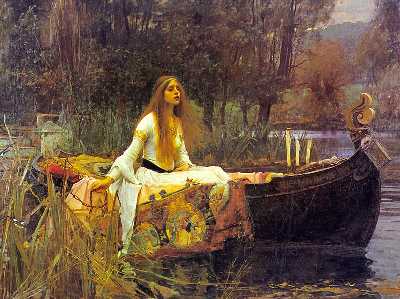 Arts visuels : Vous découvrirez lors de l’exposition J. W. Waterhouse. Le jardin des sortilèges un artiste captivé par la beauté des femmes et leur pouvoir d’attraction. Élevé à Londres et à Leeds, J. W. Waterhouse (1849-1917) est né à Rome de parents d’origine britannique. Le parcours de son œuvre, qui couvre cinq décennies, est imprégné de l’Antiquité classique. Il fait ressortir à la fois sa fascination pour la mélancolie et la magie, mais aussi les dangers de l’amour et de la beauté. Pour la première fois, tous les tableaux consacrés à la Dame de Shalott sont exposés ensemble. Cette exposition offre donc la chance unique d’analyser et de comprendre la façon dont l’artiste a exploré le poème romantique du poète anglais Alfred Tennyson, et ce, sur une période de trente ans. Une œuvre à la fois poétique, mythique et hypnotique, empreinte d’une grande théâtralité, vous attend au Musée des beaux-arts de Montréal. » Montréal, Musée des beaux-arts de Montréal jusqu’au 2 février 2010 —Julie Beaulieu
Arts visuels : Vous découvrirez lors de l’exposition J. W. Waterhouse. Le jardin des sortilèges un artiste captivé par la beauté des femmes et leur pouvoir d’attraction. Élevé à Londres et à Leeds, J. W. Waterhouse (1849-1917) est né à Rome de parents d’origine britannique. Le parcours de son œuvre, qui couvre cinq décennies, est imprégné de l’Antiquité classique. Il fait ressortir à la fois sa fascination pour la mélancolie et la magie, mais aussi les dangers de l’amour et de la beauté. Pour la première fois, tous les tableaux consacrés à la Dame de Shalott sont exposés ensemble. Cette exposition offre donc la chance unique d’analyser et de comprendre la façon dont l’artiste a exploré le poème romantique du poète anglais Alfred Tennyson, et ce, sur une période de trente ans. Une œuvre à la fois poétique, mythique et hypnotique, empreinte d’une grande théâtralité, vous attend au Musée des beaux-arts de Montréal. » Montréal, Musée des beaux-arts de Montréal jusqu’au 2 février 2010 —Julie Beaulieu